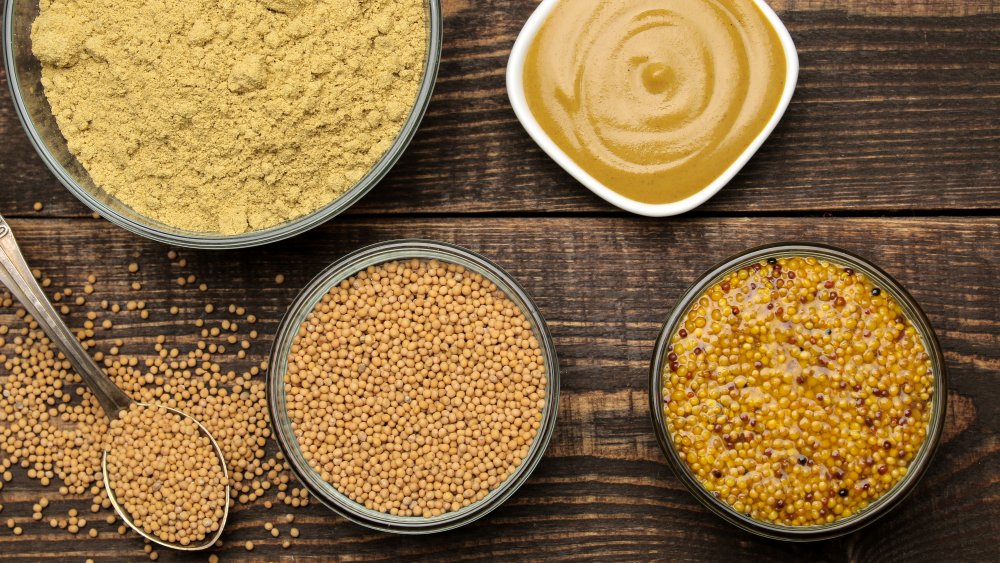The Real Reason You Should Be Eating More Mustard
Mustard – largely thought of as the condiment reserved for burgers and dogs – has a long history. In ancient Greece and Rome, mustard seeds were used in the form of a paste or powder (via Purdue University). Today, hundreds of millions of pounds of mustard are grown and used around the world.
The popular condiment is made from the seeds of the mustard plant, which is a member of the Brassica botanical family. Mustard's close cousins include other healthy heroes, like broccoli, cabbage, and cauliflower (via Health Perch). Like its relatives, both the seeds and leaves of the mustard plant offer up a plethora of necessary nutrients. "Mustard seeds are excellent sources of the trace minerals selenium and magnesium, which not only help with cancer prevention, but can also manage symptoms of asthma, arthritis, high blood pressure, and migraines," Dr. Deepa Verma told Thrillist.
Mustard seeds are also high in antioxidants, which are beneficial plant compounds that play a role in protecting our bodies from disease. Slathering the dijon on your sandwich or stirring a spoonful into a salad dressing boosts your intake of key glucosinolates (a type of antioxidant). According to Healthline, modern science links mustard's health benefits to your body's ability to fight infections.
Mustard may protect against cancer and disease
Thanks to glucosinolate-derived compounds called isothiocyanates, Healthline says mustard may protect against certain kinds of cancer. Lab research, using both test tubes and animal testing, provides evidence that glucosinolates may help prevent some cancer cells from spreading or growing.
Mustard owes its pungent and peppery taste to another important glucosinolate-derived compound: sinigrin. Sinigrin is believed to have anti-inflammatory properties – which can be helpful in reducing legions from psoriasis. This can also be good news for mustard-lovers dealing with chronic inflammation (via Thrillist). Mustard's antibacterial, antimicrobial, and antifungal properties could be helpful in warding off pathogens including E. coli. Though the jury is still out on that one.
If you're suffering from a cold or sinus issues, mustard may help. Considered a decongestant and expectorant, mustard's fiery flavor is thought to help draw mucus from the nose and lungs. Though these age-old home remedies often involve mustard seeds or oil, and not a bottle of French's Classic Yellow (via Organic Facts).

